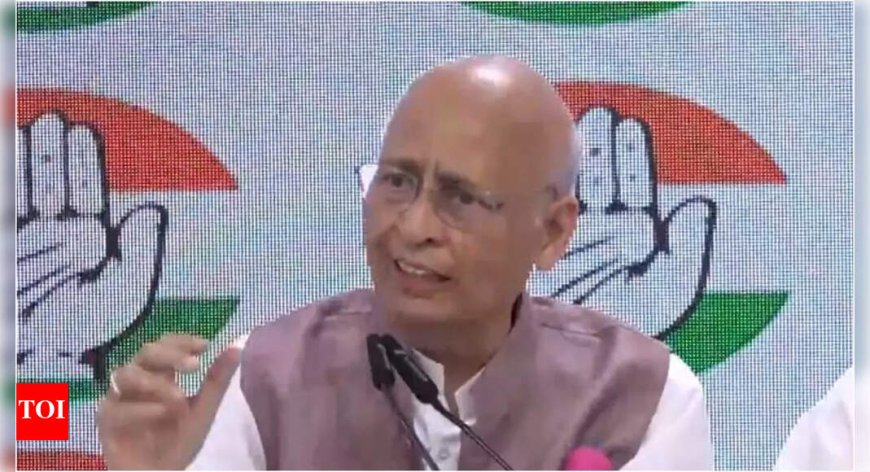Waqf law retaliation in guise of reform: Congress
Congress has strongly criticized the new waqf law, labeling it a BJP tactic to target minority institutions and undermine their autonomy. The party argues that the law, particularly Clauses 9 and 14, infringes upon the religious freedom guaranteed by Article 26 of the Constitution.

Waqf Law Retaliation in Guise of Reform: Congress
In a recent statement that has stirred discussions across the political spectrum, the Congress party has accused the government of using the Waqf law as a means of retaliation, cloaked as a reform initiative. The Congress asserts that rather than genuinely aiming to improve the management and utility of Waqf properties, the proposed changes serve to undermine the rights and interests of the Muslim community.
Understanding the Waqf Law
The Waqf law, which governs the administration of endowments dedicated for religious and charitable purposes in Islam, has been a matter of legal and social contention. With an increasing number of societies seeking changes in the law, it is pivotal to analyze how these modifications could potentially affect communities around the country.
The Congress Party's Standpoint
The Congress party's critique focuses on the timing and the manner in which the government has introduced potential reforms. They argue that instead of fostering transparency and efficiency, the changes threaten to privatize and control Waqf properties, sidelining the traditional custodians and beneficiaries.
Implications for the Muslim Community
Concerns have been raised about the implications these reforms might have on the rights of the Muslim community in managing Waqf assets. The Congress's stance highlights the fear that these changes could lead to a potential loss of heritage and cultural identity associated with these endowments. The party calls for a more inclusive dialogue to ensure that all stakeholders are represented in discussions surrounding the Waqf law.
Political Context and Future Outlook
The accusations of retaliation under the guise of reform are not new in Indian politics. The Congress party claims that the ongoing debate over the Waqf law reflects a broader strategy to marginalize specific communities. As the political climate continues to evolve, the Congress urges the government to engage in a more transparent and collaborative approach to the reform process.
For more updates and insights on this evolving issue, visit dharmyuddh.com.
Conclusion
The conversation surrounding the Waqf law is crucial not only for the Muslim community but for the fabric of Indian society as a whole. As reforms are proposed, it remains essential to scrutinize their real intentions and potential consequences. Only through open dialogue and concerted efforts can a path forward be established that honors both tradition and modern governance. Keywords: Waqf law, Congress party stance on Waqf law, implications of Waqf reform, Muslim community rights, political ramifications of Waqf law, Waqf properties management, reform or retaliation in Waqf law, understanding Waqf law reforms, impact of Waqf law changes, Congress accusation of Waqf retaliation.







